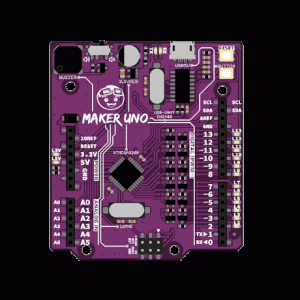Since our Maker Academy’s inception, we have been using the microcontroller CT UNO. CT UNO is designed based on the Arduino UNO form factor by Cytron Technologies. There are a few reasons for choosing Arduino, or rather CT UNO as our microcontroller platform. It was one of the easiest beginner microcontrollers to learn, and we want to support a home-grown product.
However, in our 3 years of running the Academy and classes, we found that students struggle in the first lesson. They had to learn for the first time how to make and program their circuit. It was very frustrating for both the students and the teachers. On one hand, we want our students to learn in a quick-paced manner and on the other, we want our students to grasp the concept before we move on to further and harder questions.
We did find that the main cause for the confusion and struggle is that students need to learn two new skills at the same time. It is very hard for them to separate what they know and what they don’t know when they light up the LED on the breadboard for the first time. The idea for an Arduino board, designed specifically for learning purposes took root in our head.
Cytron Technologies
Cytron Technologies, in their effort to promote coding skills in school approached Arus near the end of October last year. They wanted to create an Arduino board for school’s use that is both educator and wallet-friendly. We provided Cytron with several of our recommendations that include several built-in components, as well as programmable LEDs at each pin. We also proposed the removal of several non-essential built-in components of the Arduino UNO board. These built-in components had less importance to educational use to cut down on its cost, out came the Maker UNO.
We also found out near the end of 2017 that learning about microcontroller is to be introduced into the national syllabus. Bundled with low costs, education readiness of this new Arduino UNO, there is no better time to introduce this new microcontroller than now.
We wrote a guidebook on using Maker UNO or if the teacher preferred other Arduino UNO equivalent products and we open-sourced our content for the public.
2018 onwards, we hope to reach out to as many teachers as possible to introduce and share with them our approach in teaching microcontroller programming in school, in hopes that they too can help us to create more makers, innovators and inventors in the country.

